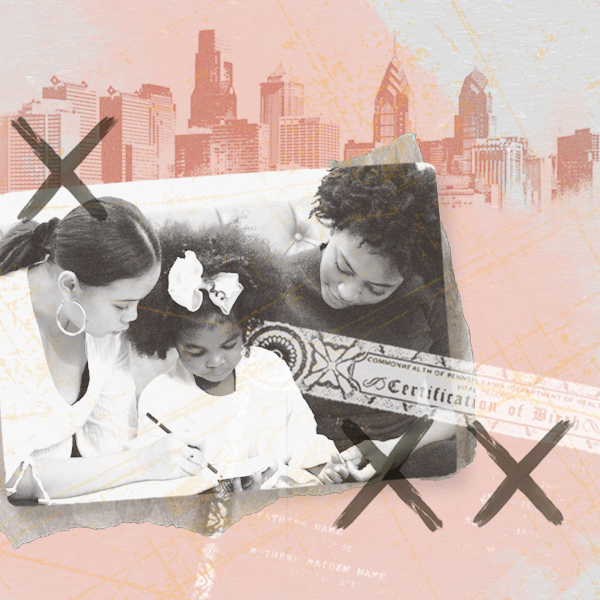First Day of Hearing in Angola Prison Case Highlights Abusive Conditions Youth Endure
The hearing was followed by a press conference where community members denounced the state of Louisiana’s decision to transfer and keep kids in Angola
BATON ROUGE, La. — Yesterday was the first day of a multi-day emergency hearing in which attorneys representing children — nearly all Black boys — incarcerated at the Louisiana State Penitentiary, known as Angola, are making the case for why emergency action should be taken to order the state of Louisiana to remove the children from Angola. At the conclusion of the first day, Louisiana community members held a press conference where they highlighted the abusive conditions in which children have been kept.
Photos from the press conference can be found here. Photos provided by Daniella Zalcman.
For over 10 months, Louisiana kids have been held in Angola, nicknamed for the former slave plantation on which the prison was built, and a former death row prison with a record of human rights abuses. Children ages 14 to 18 are being held in solitary confinement, deprived of their education, and separated from their support systems and families. In the ongoing Alex A. v. Edwards lawsuit, children at Angola describe:
- Being placed in solitary confinement for 72 consecutive hours when they arrive, and only being released from their cells for a few minutes to shower.
- Being locked in their cells at times for over 23 hours for punishment, only let out to shower in handcuffs and shackles.
- Being handcuffed and shackled as punishment when they are occasionally allowed to go outside for recreation time.
The following quotes can be attributed as noted.
Alanah Odoms, executive director, ACLU of Louisiana:
“Our children are currently being locked away in cages at Angola. The place in which this maltreatment is taking place is a place of historic shame for the state of Louisiana and for this country. Angola State Penitentiary was a plantation in which enslaved people were forced to labor until their deaths and now their ancestors are being incarcerated and locked away in the same places, and on the same fields. That is a history that we must remember and recognize. We need Governor Edwards and the leaders of the OJJ to stand on the right side of history. We know that our governor has courage; we've seen it exhibited. We need him to stand up for changing this policy today, and change the course of our history going forward.”
Bishop Sredni Autrey, Shreveport Chapter lead, Families and Friends of Louisiana’s Incarcerated Children (FFLIC):
“It is clear that the only thing Governor Edwards and the OJJ have accomplished by moving kids to Angola is further traumatizing them. This move has been directly opposed to what we know and believe in our faith and in our hearts is right for children. We must care for our children a whole lot better than what we are doing.”
Rio Valdez, youth leader, Families and Friends of Louisiana’s Incarcerated Children (FFLIC):
“The problem with our youth justice system is that they are confusing the idea of rehabilitation with punishment, punishment that solves nothing, punishment that only furthers the damage already done. I was headed down the wrong path, and had I not had the support needed from those around me I’d probably be right there with them, being punished by the system, and maybe even locked up in Angola.”
Kristen A. Rome, Co-Executive Director, Louisiana Center for Children’s Rights:
“Our juvenile justice system is designed to rehabilitate the children it serves and we know that rehabilitation starts with access to education, mental health services, and support. It is unconscionable that instead of investing in our children’s rehabilitation, the state has done everything in its power to justify holding them at Angola — a former plantation and one of the most notorious prisons in the country — without a clear plan for their safety, care, education, or reintegration into their communities.”
Cory Levier, Lafayette Chapter, Families and Friends of Louisiana’s Incarcerated Children (FFLIC):
“Right now, these children are locked up in Angola. We all believe if this is not corrected, that they are done for life and that they will not have an opportunity to further advance themselves in any way. That is the message that we are sending them. It is time for American leadership to have American values and to stand up for the Constitution that says we are all equal, we are all free, we all have opportunity and we all have a chance at prosperity.”
Eugene Collins, President, NAACP, Baton Rouge:
“We want these kids to come back and be productive members of society. Housing them in Angola is telling us that you don't care about our kids. It was under Democratic progressive leadership that we decided that these types of facilities were not best to rehabilitate kids. It’s a shame that under Democratic leadership we are putting kids back in those facilities. That does not make sense. These kids need to come out of those facilities. It is not built for children, and it's certainly not built for anybody to rehabilitate themselves.”
The Department of Justice’s statement of interest can be found here.
More information on the case can be found here.



